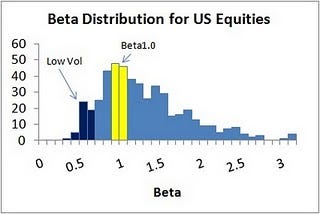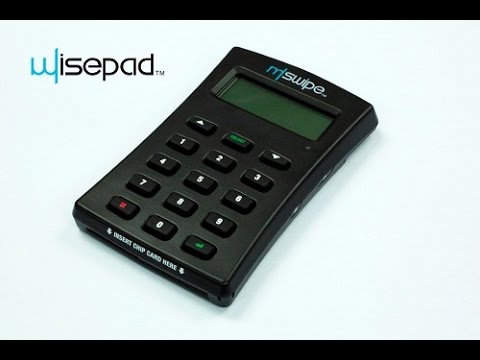Contents:
Thus, the Income Tax Department influences businesses, professionals, NGOs, income earning citizens, and local authorities, among others. Combating tax evasion and tax avoidance practices is a key duty of ITD to ensure constitutionally guided political economy. One measure to combat aggressive tax avoidance is the general anti avoidance rule . If sources are to be believed then 1984 batch Indian Revenue Service officer, Rashmi Saxena Sahni and 1985 batch IRS officer JB Mohapatra are going to be the next two new board members. They are amongst the most senior officers in the Income Tax department.
The CBDT is responsible for framing policies and procedures related to direct taxation, including income tax, corporate tax, wealth tax, and capital gains tax. It also oversees the administration of these taxes by the Income Tax Department and other subordinate authorities. The Central Board of Direct Taxes , the top policy-making body of the income tax department, is seeking to widen the net for the appointment of members to its board by inviting applications from relatively younger officers.
Charges allocated among new CBDT members
It is also responsible for printing and supplying of cbdt comprises of how many members:s and registers, statutory and non-statutory, including refund order books- both MICR & Non-MICR. At the end of the year, the DGIT(Admn.) will obtain an annual report of the performance of each DIT under him and send one copy each thereof with his comments to the Chairman, CBDT or the functional members concerned. Comments have to be in English, and in full sentences. They cannot be abusive or personal.
ITAT Weekly Round-Up – taxscan.in
ITAT Weekly Round-Up.
Posted: Wed, 22 Mar 2023 03:28:49 GMT [source]
But most important among all these were the Income-tax Act of 1922. This act of 1922 marked an important change from the act of 1918 by shifting the administration of the income tax from the hands of the provincial government to the central government. Another remarkable feature of this act was that the rates were to be enunciated by the annual finance acts instead of in the basic enactment. Again, the new Income-tax Act came in 1939. Till a couple of years ago, only officers of the rank of Principal Chief Commissioner of Income Tax were eligible for being considered for appointment as Member, CBDT.
CBDT seeks to widen net for appointment of members, makes younger officers eligible for post
The finance ministry instructed all revenue intelligence agencies to join the crackdown on forex traders, hawala operators and jewelers besides tracking movement of demonetised currency notes. The Income Tax Department of the government of India is a leader in good governance. Since large portion of population interacts with department on a yearly basis hence good governance by ITD has improved citizen satisfaction with government functioning. A very well known model of good governance, Sevottam, is being implemented by the Income Tax Department.
We have various options to advertise with us including Events, Advertorials, Banners, Mailers, Webinars etc. The contents of this website should not be construed as an exhaustive statement of law. In case of doubt, reference should always be made to the relevant provisions of the Direct Tax Laws and Rules and where necessary, notifications issued from time to time. Content provided by Income Tax Department, Mumbai. For any clarification regarding content, please contact the PRO, Income Tax Department, Mumbai. Such other information as may be prescribed, and thereafter update these publications every year.
The Senior or Junior Departmental Representative is expected to present and argue the case of the department independently and to render necessary assistance to the CIT. Functions to be performed by the Chief Commissioners including cadre controlling CCITs. Fixation of the sanctioned strength of various cadres in the charge of each CIT and allocation of officers and staff to each CIT/CIT.
CBDT seeks to widen net for appointment of members; makes younger officers eligible for post
Two other members, S K Gupta and K M Prasad, who have been in the Board for quite some time now, will look after their regular charges of taxpayer services and audit and judicial, respectively. SK Gupta, Member Tax payers Services and Systems, is holding an additional charge of Legislation. Gupta, who is holding an additional charge of Legislation, was re-appointed as a board member by the appointment committee of the Cabinet on his superannuation on July 31, 2020, for a period of one year. CBDT, on November 11, sought to widen the catchment of officers by making eligible all officers of the rank of Principal Commissioner of Income Tax and above. There are separate chapters on ‘Internal Audit’ and ‘Revenue Audit’ in volume-III of this Manual which detail the role and functions of officers at various levels in relation to audit works of the department. Transfer and posting of Group ‘A’ officers upto the level of Addl./Joint CIT and all other cadre control functions in relation to Groups ‘B’, ‘C’ and ‘D’ employees.
- Since its inception in 1963, the CBDT has been responsible for some significant developments in the Indian system of taxation.
- Nominating various officers for different training courses conducted in either NADT or in the RTIs.
- Inspection of the field offices of the Department to monitor the progressive use of Hindi in official work.
- A tax on capital gains was imposed for the first time in 1946, although the concept of ‘capital gains’ has been amended many times by later amendments.
- Thus, the Income Tax Department influences businesses, professionals, NGOs, income earning citizens, and local authorities, among others.
- The DGIT is the training coordinator for the Income-tax department.
In 1956, Mr. Nicholas Kaldor was given the responsibility of investigating the Indian tax system in light of the revenue requirement of the second five-year plan (1956–1961). He submitted an exhaustive report for a coordinated tax system and therefore, the result was the enactment of several taxation acts, viz., the wealth-tax Act 1957, the Expenditure-tax Act, 1957 and the Gift-tax Act, 1958. Subsequently, many laws were brought to streamline income tax laws. For example, the Super-Rich Tax was introduced in 1918, and the new Income-tax Act was passed in 1918.
Conduct of bench-mark tests for selection of appropriate computer hardware for various users of the Department and finalisation of terms and conditions for purchase with the approval of appropriate authorities. At the end of the year, he will obtain an annual report of the performance of each DIT under him and send one copy each thereof with his comments to the Chairman, CBDT or the functional Member concerned. To collect material and prepare briefs for the Board in respect of draft paras to be discussed at the PAC meeting and also to assist the Board on other PAC matters.
- The collection unit in a Range is headed by a TRO who is responsible for collection and recovery of tax.
- To collect material and prepare briefs for the Board in respect of draft paras to be discussed at the PAC meeting and also to assist the Board on other PAC matters.
- Preparing necessary letters of telex regarding payment of fees by Chief Commissioners of Income tax/forwarding of Special Leave Petition etc.
Working as liaison officer between Department and outside agencies such as banks, telephone department etc. Statutory functions in respect of taxation of foreign companies and non-residents and withholding tax on remittances abroad. Preparing necessary letters of telex regarding payment of fees by Chief Commissioners of Income tax/forwarding of Special Leave Petition etc. To operate a human resource information system by accessing database maintained by CBDT. RTIs will be headed by a Director/Commissioner of Income Tax. He will be assisted by Addl./Joint Director and four Deputy/Assistant Directors in addition to the specified staff.
The Central Board of Direct Taxes is the federal agency in charge of enforcing India’s direct tax legislation. Since its inception in 1963, the CBDT has been responsible for some significant developments in the Indian system of taxation. The CBDT’s principal tasks include enforcing direct tax laws, collecting taxes, and developing a direct taxation policy.
Coordination of international couhttps://1investing.in/es on direct taxes conducted in India. Planning, designing and conducting the induction/foundational training course for the officers of IRS and of other services who are selected through UPSC. The Income Tax Department has an elaborate organisation for the training of its officials -both those who are newly recruited as well as those already in service. The apex body is the National Academy of Direct Taxes (N.A.D.T) at Nagpur. This is headed by the Director General of Income Tax . He is assisted by an Additional Director General, Addl./Joint Directors and Deputy/Assistant Directors.
Tax Return Preparers are experts in income tax law and in filing of income tax returns. They can charge a maximum fee of Rs. 250, or sometimes nothing. At present Income Tax Department field offices are divided into 18 regions with territorial jurisdiction and one region for international taxation. As required for efficient and effective administration, these regions have some administrative autonomy to carry out duties assigned by CBDT. The 1922 act was amended not less than twenty nine times between 1939 and 1956. A tax on capital gains was imposed for the first time in 1946, although the concept of ‘capital gains’ has been amended many times by later amendments.
Changing of headquarters of any officer upto the level of DCIT under intimation to the cadre controlling CCIT. It compiles and analyses the annual performance statistics based on monthly progress reports and allied data sent by field offices. The DGIT acts as the cadre controlling authority in respect of Group ‘C’ employees under his administrative control . 10. Design and conduct of specialized courses abroad on direct taxes for developing countries.
Nominating various officers for different training courses conducted in either NADT or in the RTIs. DGIT shall coordinate the activities and streamline the working of the different directorates functioning under his control. Coordination with CBI and CVC in respect of complaints against officers of the department. Monitoring the utility of existing forms and registers, office layouts, etc. In the Income-tax department. Undertaking of special projects to enhance the speed of work flows in the Department for ensuring better taxpayer services and tax compliance.




